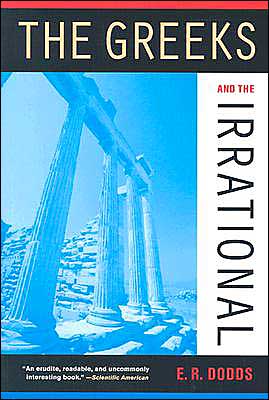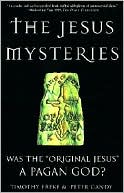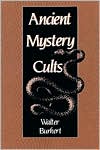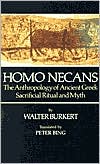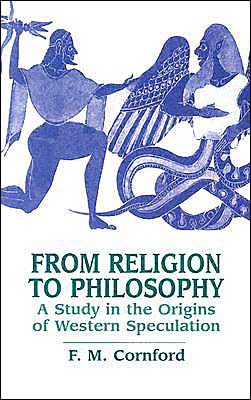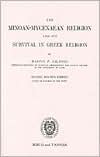The Greeks and the Irrational
In this philosophy classic, which was first published in 1951, E. R. Dodds takes on the traditional view of Greek culture as a triumph of rationalism. Using the analytical tools of modern anthropology and psychology, Dodds asks, "Why should we attribute to the ancient Greeks an immunity from 'primitive' modes of thought which we do not find in any society open to our direct observation?" Praised by reviewers as "an event in modern Greek scholarship" and "a book which it would be difficult to...
Search in google:
Fifty-three years after its original publication, this backlist title still goes strong! Here it is with a new look. The Barnes & Noble Review David Pinner, the caustic, self-absorbed malcontent at the center of Nick Laird s novel, is a tough sell. At 35, David is unaccomplished, chronically undersexed, and only vaguely conscious of his expanding girth -- the sort of embittered modern who drains his low-bubbling rage into anonymous online arguments. To spend nearly 250 pages in the company of a blogger whose online alias is The Dampener is not exactly a cheery use a of a weekend, and it is a tribute to Nick Laird s writing that Glover s Mistake proves seductive despite itself. The novel begins with the glossy certainty of social satire: David embarks on an unlikely (and not altogether convincing) friendship with his former teacher, the famous feminist artist Ruth Marks, and, in her company, gets drawn into London s slick and suck-uppy gallery scene. He falls for Ruth in his tepid, lustless way, only to watch her fall into the bed of his flatmate, the earnest, God-fearing, not to mention young and handsome, James Glover. While Glover lends the novel its title, his mistake is only one among many. What begins as comedy slips into vindictiveness as David s jealousies get the better of him, and he sets about to destroy the relationship between narcissistic Ruth and her puppy-dog lover. Laird is a delicate and sharply observant writer, and his dual identity as a poet shows through: David unzipped his hooded top and took it off, and wished emotions were like clothes, that he could remove them, fold them, set them somewhere, he writes, exposing all of David s stuntedness in this most quotidian of gestures. Laird hews closely to David s perspective -- a familiar stunt in narrative unreliability -- stepping outside his protagonist s eyes and ears only when he needs a cutting detail: David s clammy palms, Ruth s haunted memories of her daughter. In lesser hands, Glover s Mistake would feel tired, but in Laird s, it bristles with a tense energy. --Amelia Atlas
IAgamemnon's apology1IIFrom shame-culture to guilt-culture28IIIThe blessings of madness64IVDream-pattern and culture-pattern102VThe Greek shamans and the origin of Puritanism135VIRationalism and reaction in the Classical age179VIIPlato, the irrational soul, and the inherited conglomerate207VIIIThe fear of freedom236App. IMaenadism270App. IITheurgy283
